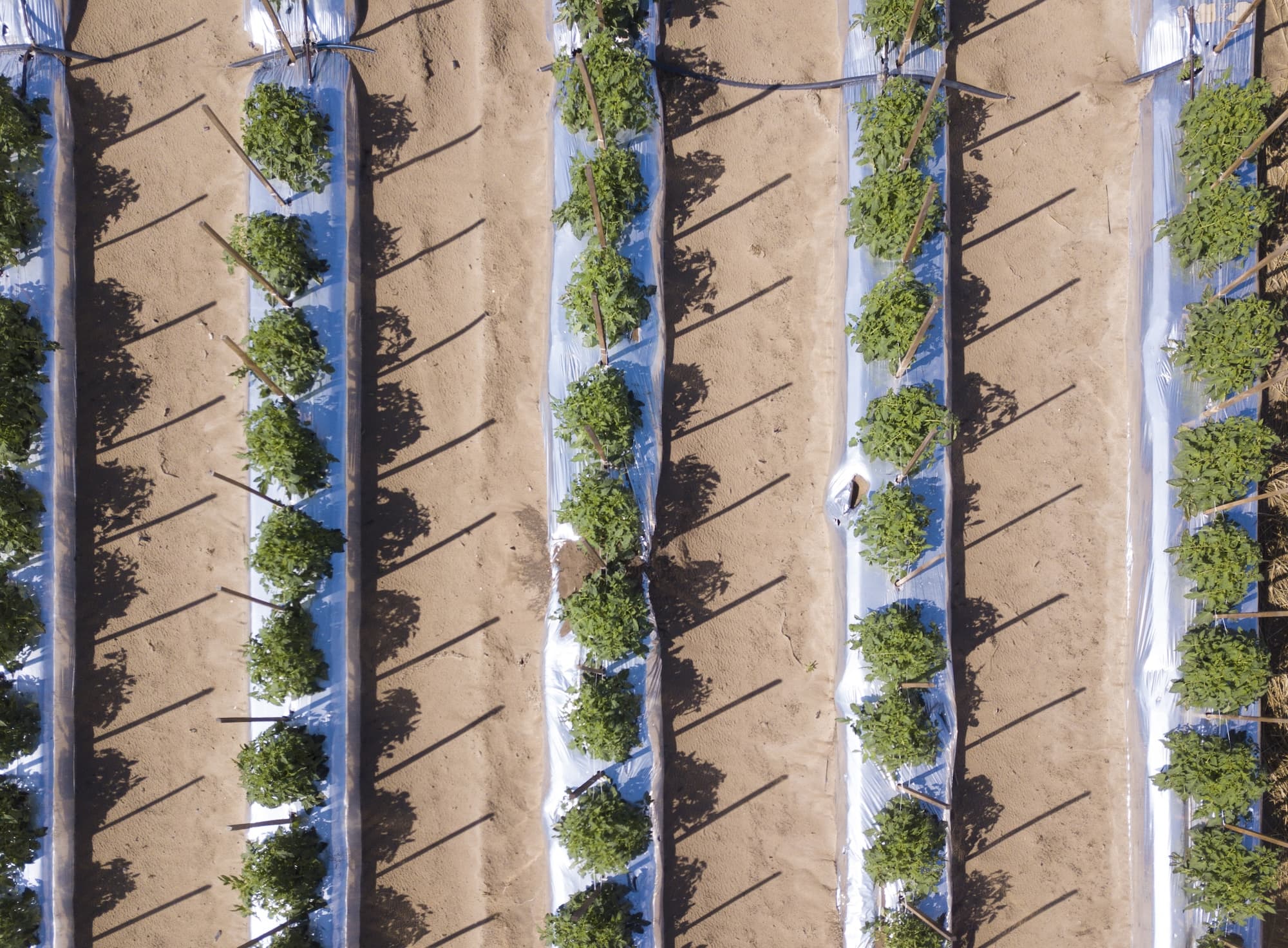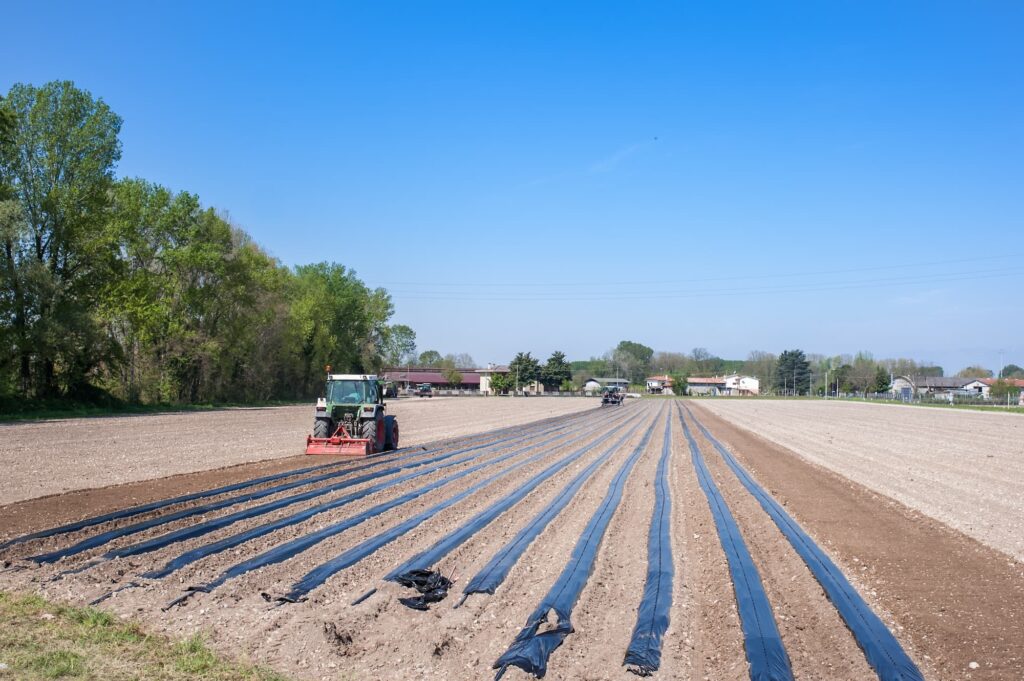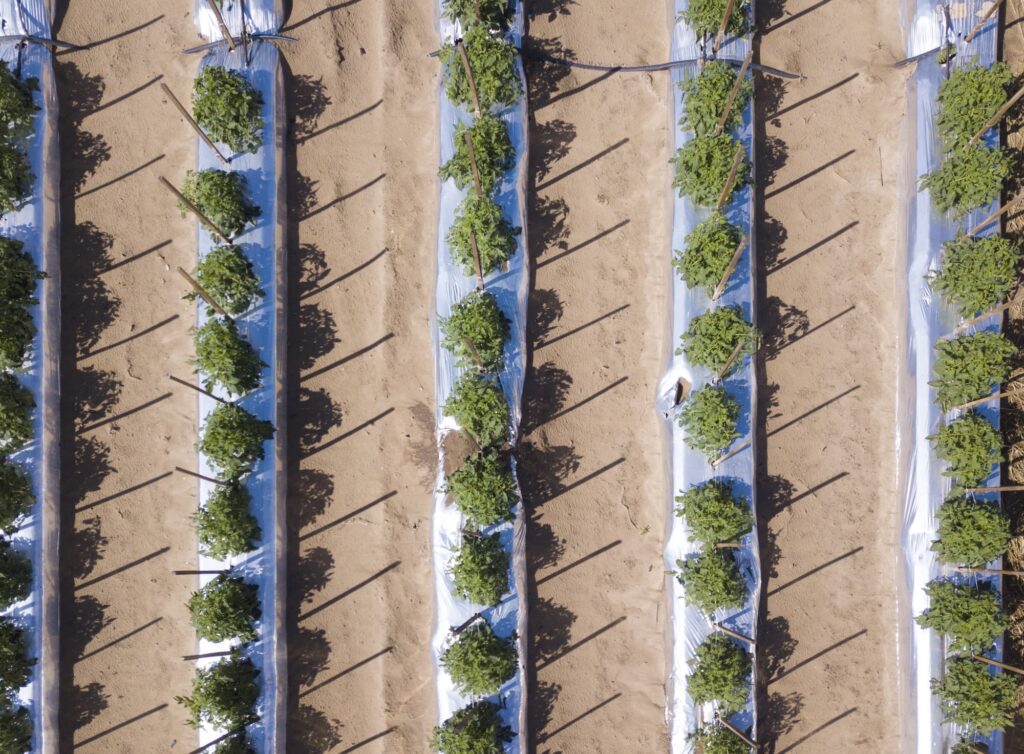

Agricultural mulch, designed to safeguard crops, is specifically meant for use in open environments. Conventional agricultural mulches are made of polyethylene and polypropylene, which are not biodegradable.


By the end of the crop growing season, the agricultural mulching film is heavily contaminated with soil and severely degraded making its collection for recycling both difficult and economically ineffective. Furthermore, as the plastic breaks down it contributes to macro- and microplastic contamination with significant environmental impacts. This makes agricultural mulch film an ideal application for biodegradable plastics.
The development of biodegradable agricultural mulch (BDM) has been a recent research and industry focus. Examples include BioAgri manufactured by BioBag with polybutylene adipate-co-terephthalate (PBAT)/starch blends, Organix manufactured by Organix Solutions with polylactic acid/PBAT blends, Naturecycle manufactured by Custom Bioplastics with polyesters with starch blends.
The BDM market is currently valued at 15,000 M€ in 2022, and is estimated to reach 23,000 M€ by 2030. However, there is a current concern that BDM may not decompose in the proposed time frame, as it requires specific industrial composting conditions to degrade, including specific temperature, moisture level, and the presence of certain microorganisms. Without these specific conditions, BDM may take many years to fully degrade in the soil (OECD, 2022). As a result, plastic pollution persists even with BDM.
MAGICBIOMAT aims to develop BDM with tailored biodegradability by compounding biodegradable polymers with biodegradable and enzymatic additives that promote the breakdown of the films by local microbes. The MAGICBIOMAT biodegradable mulching film will degrade by 30% within 6 months, 60% within 12 months, and 90% by the 24-month mark, aligning with the growth cycle of various vegetables and annual crops within a single season.
Reference:
Organisation for Economic Co-operation and Development (OECD). (2022). Plastic pollution is growing relentlessly as waste management and recycling fall short. OECD Publishing. https://www.oecd.org/environment/plastic-pollution-is-growing-relentlessly-as-waste-management-and-recycling-fall-short.htm
